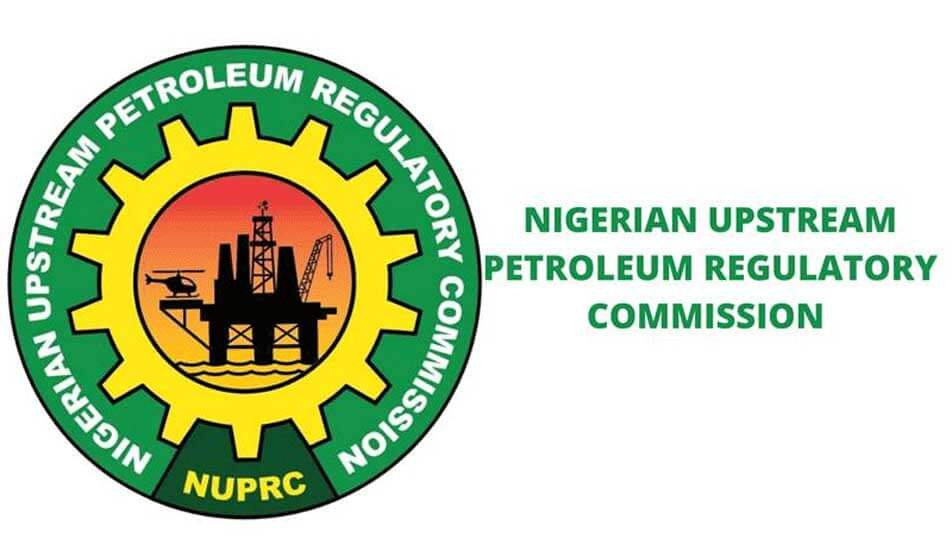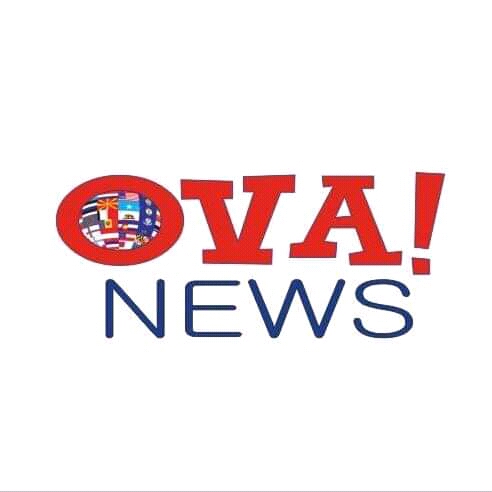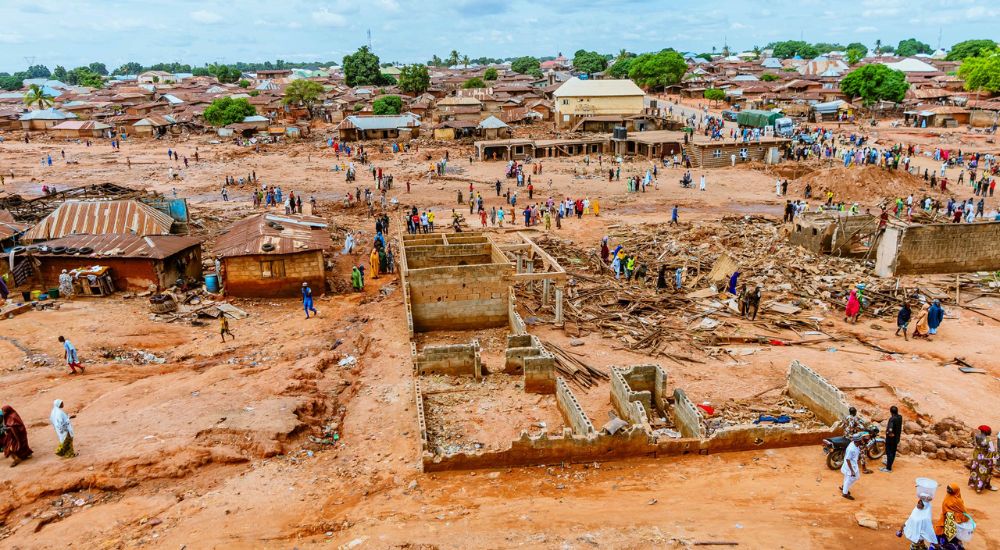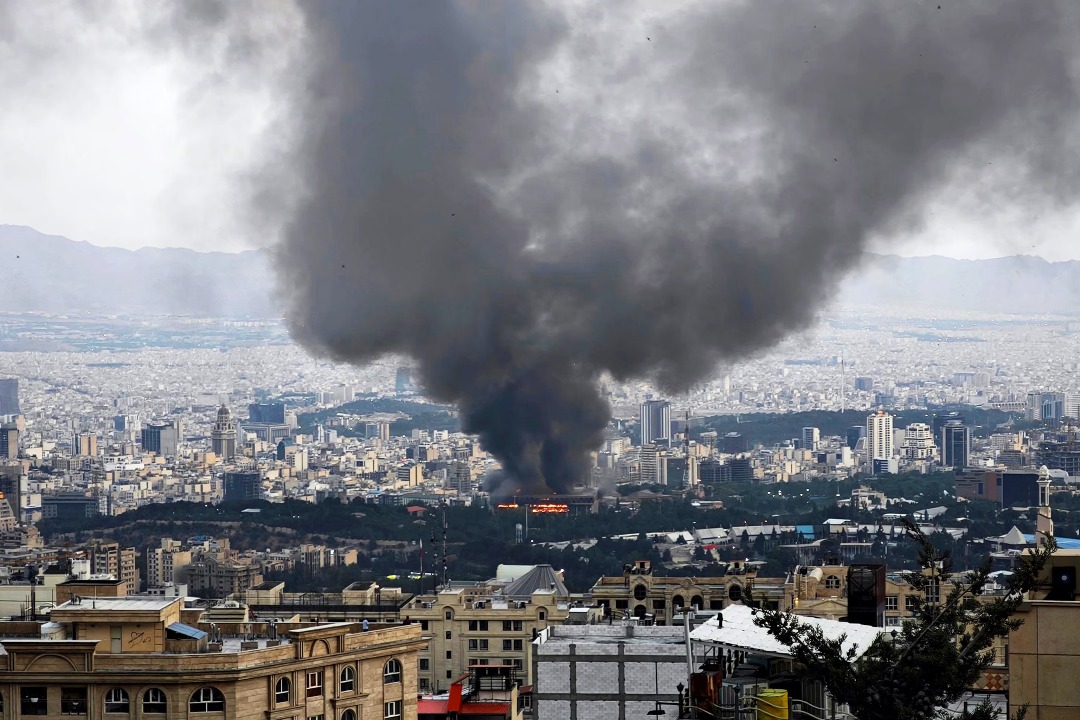Israel-Iran Conflict: The Nigerian Connection

When Israel launched Operation Rising Lion in the early hours of June 13, 2025, most Nigerians were asleep. The footage came in fragments—precision airstrikes, sirens over Tel Aviv, defiant chants in Tehran. Within hours, Iran responded with Operation True Promise III, unleashing waves of drones and missiles toward Israeli positions. It was dramatic, brutal, and all too familiar: another chapter in the long, looping narrative of Middle Eastern conflict. But the shockwaves didn’t stop at the borders of Iran or Israel. They travelled through global oil markets, diplomatic corridors, and geopolitical nerves—and in their wake, Nigeria began to feel the tremors.
By the end of that first week, crude oil prices had jumped sharply. For Nigeria, an oil economy in all but name, this was both a relief and a riddle. Higher oil prices meant more dollars from exports, more money flowing into government accounts, and—at least on paper—a budget easier to balance. After all, oil still accounts for more than 90% of Nigeria’s export earnings and approximately half of the government’s revenue. With the 2025 budget benchmarked at $75 per barrel, any sudden climb toward $100 looked like a gift from chaos.
But nothing is ever that simple. The same price surge that may pad Abuja’s pockets may also punish everyday Nigerians. The cost of diesel, already elevated due to subsidy removals and pipeline vandalism, may rise further. Transporters may hike their fares. Manufacturers facing higher energy costs may pass them on to consumers. Tomatoes, noodles, cement—everything cost more. The Central Bank, still trying to steady the naira and tame inflation, has hinted at another interest rate hike. What began as a geopolitical explosion thousands of miles away may be shaping monetary policy in Abuja and emptying wallets in Enugu. It was a familiar paradox: Nigeria, rich in oil, drowning in cost.
The Israel-Iran conflict touches nerves far beyond the battlefield, and for Nigeria, it activates a complicated web of diplomatic, religious, and geopolitical considerations. First, Nigeria’s identity as a multi-religious nation plays an outsized role in how it engages with conflicts in the Middle East. With a large and politically active Muslim population, especially in the northern regions, Nigeria must be mindful of public sentiment. Historically, Muslim-majority countries across Africa have taken strong stances on Palestinian liberation and opposed Western alignment with Israel. Domestic political actors and Islamic clerics in Nigeria often echo this sentiment, making neutrality a high-wire act for Nigerian diplomats.
Furthermore, Nigeria has long held an official position that supports the Palestinian cause, often voting in favour of Palestinian self-determination at the United Nations and other multilateral platforms. This legacy shapes its foreign policy and regional affiliations, including membership in the Organisation of Islamic Cooperation (OIC). However, over the past decade, Nigeria has also established discreet but critical bilateral relations with Israel, particularly in the areas of technology, security, counterterrorism, agriculture, and water management. Israeli companies have participated in developmental projects in Nigeria, and security cooperation has included counter-insurgency support in the fight against Boko Haram, Piracy and banditry.
This means that Nigeria cannot afford to alienate either side. It must craft a nuanced diplomatic language that upholds its historical solidarity with Palestine while preserving its growing strategic relationship with Israel. It also has to navigate its broader relationship with the Islamic world, which includes key oil-producing allies in the Middle East like Saudi Arabia and the UAE—countries that are themselves carefully managing their stakes in the Israel-Iran drama. All this unfolds while Nigeria also depends on the West, particularly the United States and European Union, for development assistance, security cooperation, and trade.
Nigeria’s diplomatic stance on the Israel-Iran conflict may not significantly alter global outcomes, but it must be carefully calibrated to prevent internal unrest, diplomatic fallout, or reputational harm. Silence, ambiguity, or outright bias could ignite tensions at home or weaken strategic partnerships abroad. A clear, principled voice that calls for de-escalation, protection of civilians, and respect for international law may be Nigeria’s best option.
The possibility that this conflict might escalate into a broader regional war is very real. Should the United States choose to launch direct attacks on Iranian nuclear facilities—or if Iran’s proxies such as Hezbollah, the Houthis, or Shia militias in Iraq step up hostilities—there could be a cascading effect involving multiple regional and global actors. Such a scenario would send oil prices soaring well past $120 per barrel, destabilise maritime routes like the Strait of Hormuz, and unleash a wave of economic, political, and humanitarian crises that would reverberate across the globe.
For Nigeria, the implications would be immediate. Escalation means higher global risk aversion, reduced foreign investment, rising credit costs, and potential disruptions to international trade, particularly in refined petroleum products. Furthermore, regional escalation would lead to increased Western military engagement, further entrenching U.S. and European interests in the Middle East and possibly diverting attention and resources away from African security challenges, such as the Sahel insurgency, piracy in the Gulf of Guinea, and democratic backsliding in West Africa.
There is also the danger of ideological spillover. Nigeria, like many African nations, is not immune to the influence of radical religious narratives. An intensified Middle East conflict could embolden extremist rhetoric among fringe groups in Nigeria, feeding into existing tensions and undermining national security. The more the region becomes radicalised by foreign grievances, the harder it becomes to sustain Nigeria’s fragile religious harmony.
This underscores the need for Nigeria to strengthen its intelligence and border control capabilities, monitor ideological infiltration, and insulate its domestic narrative from imported conflicts. It also suggests that Nigeria must be more proactive in multilateral diplomacy—working with the African Union, ECOWAS, and international partners to advocate for de-escalation and peaceful resolution.
One of the more cynical realities of modern geopolitics is the profitability of war. The Israel-Iran conflict, like many before it, activates a global defence economy—particularly centred around the U.S., where the military-industrial complex thrives on instability. Every missile launched, every defence shield deployed, and every infrastructure project destroyed and rebuilt becomes a commercial opportunity for arms manufacturers, defence contractors, and reconstruction firms. The result is a self-reinforcing cycle in which war fuels business, and business, in turn, incentivises prolonged instability.
This pattern is not lost on observers in the Global South. Nigeria, a resource-rich but infrastructure-poor country, should be cautious about relying too heavily on global instability as an economic stimulus. Rising oil prices may temporarily swell government coffers, but they are not a development strategy. Countries that rely on geopolitical chaos to grow their revenue become addicted to volatility and unprepared for long-term planning.
Moreover, this cycle of conflict reinforces geopolitical blocs and divides the world into transactional alliances. The more Nigeria appears to benefit from war passively—without articulating its long-term interests or building internal productive capacity—the more it risks being seen as a peripheral player in a world order defined by power politics. The war economy is seductive but ultimately unsustainable. Nigeria must avoid being pulled into its orbit.
The short-term benefit of this crisis—a spike in crude oil prices—should be treated with strategic sobriety. If the Nigerian government sees this windfall as a new lease on life for its oil-dependent model, it will only delay the inevitable reckoning. Instead, this moment should be used as a pivot: to increase oil production where possible, reduce infrastructural leakages, and reinvest earnings into non-oil sectors.
Nigeria should urgently ramp up efforts to repair its vandalised pipelines, restore confidence among international oil companies, and support indigenous players. Clear fiscal terms under the Petroleum Industry Act must be enforced and simplified to remove ambiguity. With production levels at 1.3 million barrels per day—well below potential—there is room to grow responsibly and transparently.
But more importantly, this is the time to channel revenues into transformational infrastructure. Funds should be directed toward stable electricity, modern rail networks, agricultural value chains, and digital infrastructure. This includes supporting local refining through modular refineries.
At the same time, Nigeria must demonstrate fiscal responsibility. Revenues should be used to rebuild the Excess Crude Account, pay down expensive external debt, and introduce legal frameworks that limit excessive recurrent spending.
Most importantly, Nigeria must stop pretending that commodity booms are equivalent to economic growth. Proper growth requires the development of human capital, the rule of law, institutional reform, and policy continuity. It requires investing in people and systems that can withstand the inevitable bust when oil prices crash again. Because they always do. Any windfall from the Israel-Iran conflict may be unearned, but what Nigeria does with it will be the most accurate test of leadership.
Ultimately, the lesson Nigeria should draw is one of providence tempered by prudence. The sudden windfall from rising oil prices triggered by the Israel-Iran conflict offers a narrow corridor to shore up finances, invest in the future, and strengthen institutions. But it also carries a warning: depending on episodic spikes driven by external instability is neither sustainable nor ethical. Actual resilience demands focusing on governance reforms, economic diversification, and social cohesion so that when the next shock—whether geopolitical, climatic, or technological—arrives, Nigeria’s economy and polity are better equipped to absorb it.
In the unfolding drama between Tehran and Tel Aviv, Nigeria may feel tremors in its markets and society, but it must direct its fate by using any temporary gains to build enduring foundations rather than chasing transient gains born of conflict. There is no oil price high enough to replace good governance. No foreign war is sufficient to substitute for domestic vision. As the world watches the Middle East burn, Nigeria must look inward, ask hard questions, and act with clarity because the real conflict isn’t just between Israel and Iran. It’s between what Nigeria could become—and what it will settle for.
– Dakuku Peterside, a public sector turnaround expert, public policy analyst and leadership coach, is the author of the forthcoming book, “Leading in a Storm”, a book on crisis leadership.
Disclaimer: This article is entirely the opinion of the writer and does not represent the views of The Whistler.
Israel-Iran Conflict: The Nigerian Connection is first published on The Whistler Newspaper




